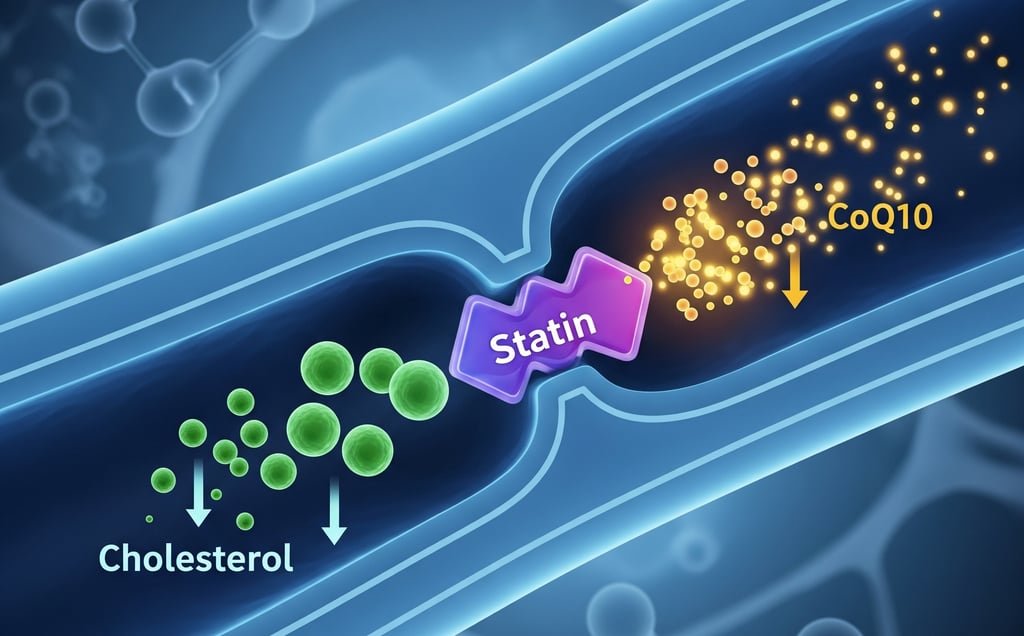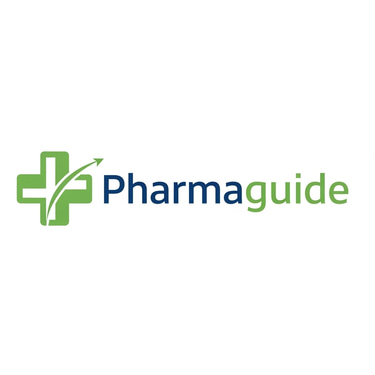Does Coenzyme Q10 Improve Cholesterol? Science Answers
Discover how Coenzyme Q10 lowers LDL cholesterol and triglycerides. We'll show you the exact data and the optimal science-backed dosage. The definitive evidence-based guide.
CHOLESTEROL
Nuri El azem De haro
9/11/20255 min read


If you're immersed in the world of natural health, you've probably heard of Coenzyme Q10. It's promoted as a miracle supplement for energy, heart health, and, yes, also for cholesterol. But in a market saturated with claims, it's hard to separate the marketing from the real science.
Does CoQ10 really work to improve blood lipids? Or is it just another empty promise?
To find the answer, it's not enough to look at a single study. The definitive answer comes from this meta-analysis: Liu, Z., Tian, Z., Zhao, D., et al. (2023). Effects of Coenzyme Q10 Supplementation on Lipid Profiles in Adults: A Meta-analysis of Randomized Controlled Trials. The Journal of Clinical Endocrinology & Metabolism, 108(1), 232–249. It's the most comprehensive analysis to date in one of the world's most prestigious endocrinology journals.
Today, I'm not just going to tell you its conclusions, but we're going to break down together what each piece of data means for your health. Get a cup of tea ready, because this is for you.
The Study: The Most Comprehensive Analysis to Date
Before we dive into the results, it's crucial to understand why this study is so important.
A meta-analysis isn't a simple experiment. It's a research study that collects, analyzes, and combines the results of dozens of previous studies. Imagine that instead of listening to just one person's opinion, you could ask 50 experts and summarize what they all think. That's a meta-analysis.
In this case, the scientists acted like scientific detectives:
They tracked 4 medical databases and found 3,364 articles.
They applied rigorous filters: they only included Randomized Controlled Trials (RCTs), the "gold standard" of research. This means participants are randomly assigned to take CoQ10 or a placebo, and neither they nor the researchers know who is taking what (double-blind). This eliminates a lot of bias.
They selected 50 high-quality studies that met all the criteria.
They analyzed data from 2,794 people to draw general conclusions.
This methodology is what gives us the highest confidence in the results.
The Results: Here's What They Found
After analyzing all the data, the results were very clear. CoQ10 supplementation produced statistically significant improvements in all key lipid profile markers:
🔻 Total Cholesterol (TC): A 5.53 mg/dL reduction.
What does this mean? Total cholesterol is the sum of all types of cholesterol in your blood. A reduction of nearly 6 points might seem modest, but at a population level, it's very relevant. It's a move in the right direction and a sign that the body is responding.
🔻 LDL Cholesterol (the "bad" kind): A 3.03 mg/dL reduction.
What does this mean? This is the most-watched marker. LDL transports cholesterol to your arteries, where it can form plaque (atherosclerosis). Lowering it is the main goal of most treatments. A drop of 3 mg/dL, while not as drastic as with a statin, is a very valuable complementary contribution. According to other meta-analyses, an LDL reduction of this magnitude is associated with an approximate 1.5% decrease in the risk of coronary mortality.
🔻 Triglycerides (TG): A 9.06 mg/dL reduction.
What does this mean? This is perhaps the most impressive result! Triglycerides are a type of fat that circulates in the blood and can rise significantly with diets rich in sugars and refined carbohydrates. High levels are strongly linked to inflammation and cardiovascular risk. A reduction of more than 9 points is a remarkable and clinically relevant effect that shows CoQ10's potent effect on fat metabolism.
🔺 HDL Cholesterol (the "good" kind): A 0.83 mg/dL increase.
What does this mean? HDL acts like a garbage truck, collecting excess cholesterol from the arteries and taking it to the liver for disposal. Increasing it is notoriously difficult, even with medications. That's why, even though the 0.8 point increase is small, it's significant and positive. Every small increase counts for the health of your arteries.
The Optimal Dose: How Much CoQ10 to Take?
One of the biggest gaps this meta-analysis came to solve was the dosage. Is more always better? The answer is no.
The researchers used an advanced statistical model to plot the dose-response relationship. They discovered that the relationship with total cholesterol has an "inverse J" shape:
As the dose increases, the benefit improves.
But upon reaching a certain point, the effect stabilizes, and there are no additional gains.
The optimal point, where you get the maximum benefit for lowering total cholesterol, is between 400 and 500 mg of CoQ10 per day.
This is invaluable information. It tells us that it's not necessary to spend money on megadoses of 1,000 mg or more, as they won't offer any significant extra benefit for cholesterol. The efficient and effective dose is in the 400-500 mg/day range.
Why Does CoQ10 Work?
CoQ10 is not a miracle drug, but a molecule with crucial functions in our bodies:
Antioxidant Shield: CoQ10 is one of the most powerful antioxidants in our body. It actively protects LDL ("bad" cholesterol) particles from oxidation. Why is this crucial? Because oxidized LDL is what actually damages arterial walls and starts plaque formation. CoQ10 neutralizes it.
Cellular Energy Factory: CoQ10 is fundamental in the mitochondria, your cells' powerhouses. By optimizing energy (ATP) production, it improves the overall metabolism of fats and sugars, helping the body use them more efficiently and not store them.
Support for "Good" Cholesterol: Lab studies show that CoQ10 improves the functionality of HDL, helping it do its "cleanup" job better. It improves what's called "cholesterol efflux capacity."
Mitigates Statin Side Effects: This is a crucial point. Statins, the most prescribed cholesterol drugs, deplete the body's natural CoQ10 levels (by inhibiting the same metabolic pathway). This can cause side effects like muscle aches. Supplementing with CoQ10 not only helps improve the lipid profile on its own but can also offset this depletion and improve medication tolerability.
Final Conclusion: Should You Incorporate CoQ10 Into Your Routine?
This high-quality meta-analysis allows us to state with great certainty that:
✅ Coenzyme Q10 supplementation is an effective strategy to moderately but significantly improve the complete lipid profile, lowering total cholesterol, LDL, and triglycerides and slightly increasing HDL.
✅ Dosage Recommendation: Based on this meta-analysis, look for a supplement that allows you to take between 400 mg and 500 mg per day. Many supplements come in 100 mg or 200 mg capsules, so taking two 200 mg capsules a day would be an excellent option.
Who is it especially interesting for?
People with mild or moderate dyslipidemia looking for a complementary natural approach.
Individuals who don't tolerate statins well and experience muscle aches.
Anyone who wants to support their cardiovascular and metabolic health on a scientific basis.
If you're considering incorporating CoQ10 into your routine to support your cardiovascular health, you can now do so with the confidence that the most solid scientific evidence supports its use. My recommendation is to take it in conjunction with other products to lower cholesterol levels, since both red yeast rice and omega-3 supplements usually contain coenzyme Q10, so it's not necessary to buy it separately. I've left some supplements with Coenzyme Q10 for you in the following link.
💡 Important: Always consult with your doctor before starting any supplementation, especially if you already take medication for cholesterol or have any medical condition.
